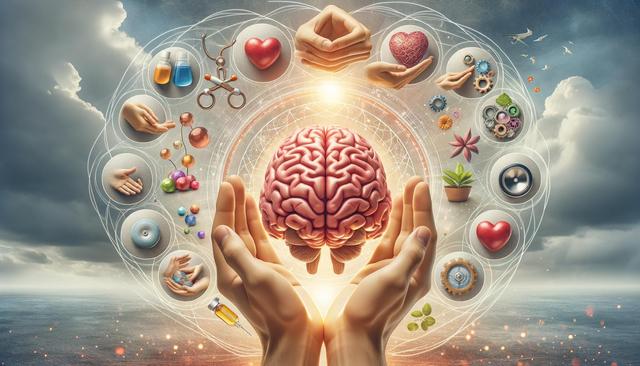Understanding the Goals of Stroke Therapy
Recovering from a stroke can be a complex and long-term process, and therapy plays a central role in helping individuals regain lost functions and improve their quality of life. Stroke therapy is a critical aspect of recovery for individuals who have experienced a stroke, aiming to restore mobility, communication, and independence. The primary goals of stroke therapy include reducing impairments, preventing complications, and promoting overall health and wellness. Each therapeutic plan is typically customized to meet the unique needs of the patient, factoring in the location and severity of the stroke, as well as age and other health conditions.
Patients often work closely with a multidisciplinary team of healthcare professionals, including physical therapists, occupational therapists, speech-language pathologists, and neurologists. This team approach ensures that all aspects of recovery are addressed, from motor skills and cognitive abilities to emotional well-being. Early intervention is also a key factor in therapy effectiveness, as it can influence the degree of functional recovery. The sooner therapy begins, the higher the chances of regaining abilities that may have been impaired during the stroke.
Physical Therapy for Motor Function Recovery
Physical therapy is often one of the first types of rehabilitation that stroke survivors encounter. It focuses on improving strength, coordination, and movement in affected limbs. Since many stroke patients experience partial paralysis or weakness, physical therapy exercises are tailored to target these specific areas. Stroke therapy is a critical aspect of recovery for individuals who have experienced a stroke, especially when it comes to regaining motor control and balance.
Common physical therapy strategies include:
- Range-of-motion exercises to maintain or improve joint flexibility
- Strength-training exercises to rebuild muscle mass
- Balance training to reduce the risk of falls
- Functional mobility tasks such as walking or transferring from bed to chair
Therapists may also incorporate assistive devices like walkers or braces to support mobility. In some cases, innovative techniques such as robotic-assisted therapy or electrical stimulation are used to enhance motor recovery. The key to success lies in consistency and patient engagement, with regular sessions and at-home exercises playing a huge role in progress.
Occupational Therapy to Regain Daily Living Skills
Occupational therapy focuses on helping stroke survivors become more independent in their daily activities. Stroke therapy is a critical aspect of recovery for individuals who have experienced a stroke, particularly when it affects their ability to perform self-care tasks like bathing, dressing, cooking, or using the toilet. Occupational therapists evaluate the patient’s current limitations and develop a plan to overcome them through adaptive techniques and tools.
Some of the adaptive strategies include:
- Using modified utensils for eating
- Installing grab bars and other safety equipment at home
- Teaching one-handed techniques for common tasks
- Recommending energy conservation methods to avoid fatigue
Therapy sessions often simulate real-life scenarios so that patients can practice essential skills in a controlled environment. This type of therapy not only improves physical ability but also boosts confidence and emotional resilience, which are vital for long-term recovery. Occupational therapy may also involve caregiver training to ensure that family members can support the patient’s needs appropriately.
Speech and Cognitive Therapy for Communication and Memory
Many stroke survivors experience difficulties with speech, language comprehension, and memory. Speech-language pathologists play a vital role in addressing these challenges. Stroke therapy is a critical aspect of recovery for individuals who have experienced a stroke, and regaining the ability to communicate effectively can significantly enhance social interaction and personal autonomy.
Therapies in this category typically include:
- Speech exercises to improve articulation and fluency
- Language activities to enhance understanding and expression
- Memory drills to strengthen cognitive function
- Swallowing therapy for those with dysphagia
Sessions are designed to be interactive and may involve the use of technology, such as apps and computer software, to reinforce learning. Stroke survivors with aphasia or other communication disorders benefit greatly from personalized therapy plans that adapt to their pace of progress. Regular assessments help track improvement and adjust techniques as needed.
Psychological and Emotional Support in Stroke Recovery
Emotional health is an often-overlooked yet essential part of stroke rehabilitation. Depression, anxiety, and frustration are common among stroke survivors, and addressing these emotional challenges is crucial for achieving a successful recovery. Stroke therapy is a critical aspect of recovery for individuals who have experienced a stroke, not only for physical healing but also for mental well-being.
Support options include:
- Counseling or psychotherapy to cope with emotional changes
- Support groups for sharing experiences and building community
- Mindfulness and relaxation techniques to reduce stress
- Medication for managing depression or anxiety when necessary
Incorporating emotional support into the rehabilitation plan leads to improved engagement in therapy and a more positive outlook on recovery. Family involvement is also encouraged, as loved ones often serve as the primary support system. Helping caregivers understand the emotional journey of stroke recovery can improve communication and reduce caregiver burnout.
Conclusion: A Comprehensive Approach to Stroke Recovery
Effective stroke therapy involves a combination of physical, occupational, speech, and emotional rehabilitation strategies. Stroke therapy is a critical aspect of recovery for individuals who have experienced a stroke, and a tailored, multidisciplinary approach offers the best chance for regaining independence and improving quality of life. Every patient’s recovery journey is unique, and ongoing collaboration between healthcare providers, patients, and families ensures that therapy remains responsive to evolving needs. With time, dedication, and comprehensive care, many stroke survivors can make meaningful strides toward recovery.






